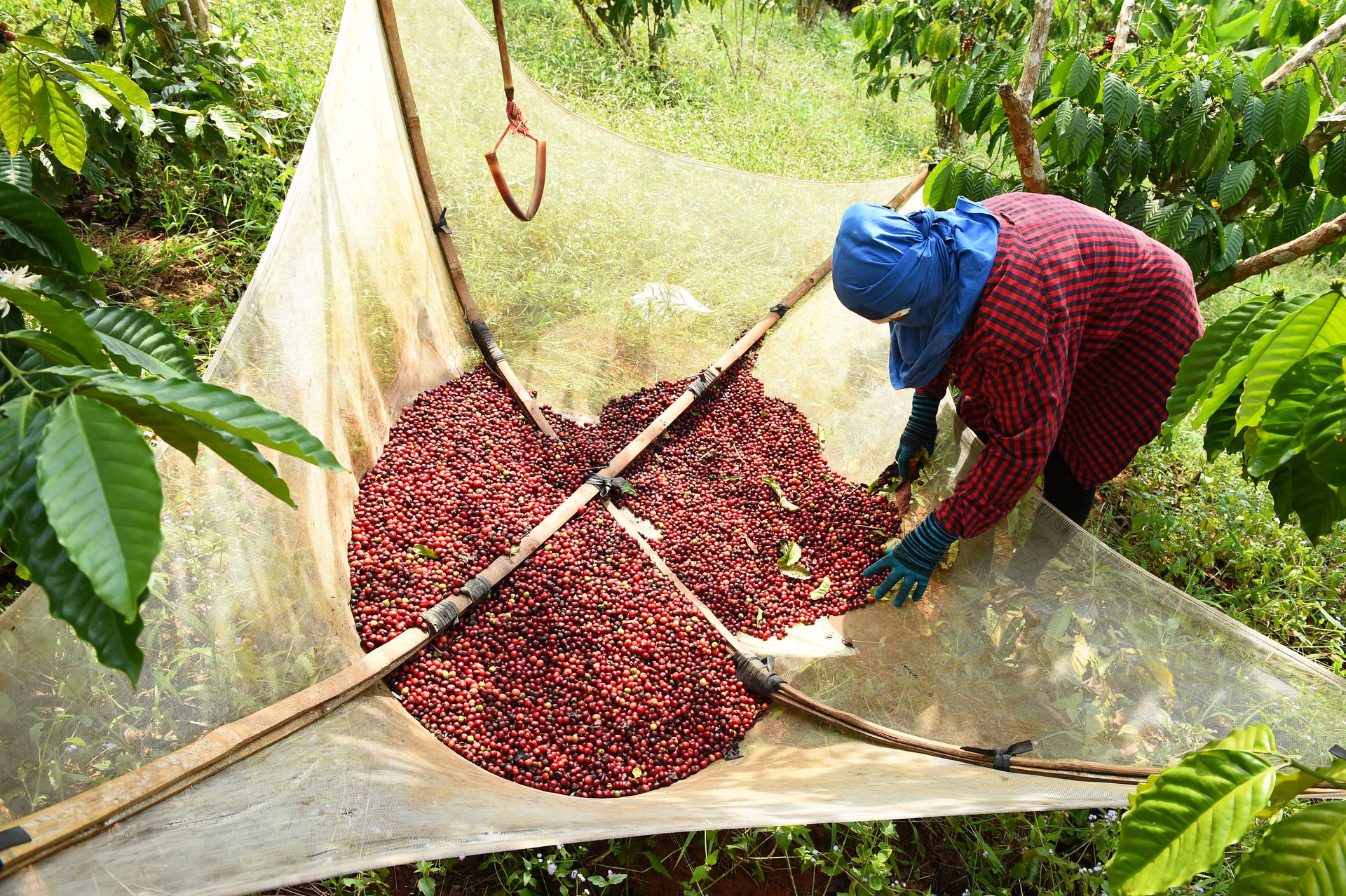The 4C Services GmbH has joined the efforts of coffee farmers, trade, industry and civil society in order to improve the lives of people in the entire coffee sector. Operating within three dimensions of sustainability, 4C members work jointly towards improving economic, social and environmental conditions through more sustainable and transparent practices.
As an approved 4C auditor, QIMA can process your application for 4C certification, inspect different elements of your coffee supply chain to verify compliance with the 4C Code of Conduct, and, upon successful evaluation, request the issue of a relevant certificate.
What Does 4C Certification for Coffee Mean?
The 4C Services GmbH defines its mission as providing the highest degree of quality, independence, credibility and innovation for services to the coffee sector. The 4C Code of Conduct applies numerous criteria in three dimensions of sustainability:
Economic dimension
Social dimension
Environmental dimension
The code features 27 principles based on good agricultural and management practices, international conventions and guidelines accepted in the coffee sector, as well as 10 unacceptable practices that a business must exclude before applying for 4C certification.
Need more information?
By contacting QIMA you agree to our privacy policy and terms and conditions.
What is evaluated during 4C certification?
The 4C Code of Conduct is a set of sustainability principles and criteria for the production of green coffee beans. Its inclusive nature aims to reach producers who do not currently participate in the sustainable coffee market and bring them into compliance with economic, social, and environmental sustainability criteria. The main 4C principles and criteria are:
1. Economic Dimension:
Business Management
Skills and Competency Development
Access to Market Services and Information
Traceability
2. Social Dimension:
Human and Labor Rights
Working Conditions
3. Environmental Dimension:
Protection of Biodiversity and High Carbon Stock Areas
Use of Pesticides and Other Hazardous Chemicals
Soil Conservation and Fertility
Water Conservation
Waste Management
Control point levels
Each criterion involves specific control points to be assessed during the audit in order to check compliance with the respective criteria. The main pillar of the 4C System is the process of continuous improvement, which allows for a smooth entry into certification, followed by advanced and more demanding control points to be implemented over six years, with compliance assessed at three different levels:
Level 1 compliance: Requirements to be met in the initial certification audit.
Level 2 compliance: Requirements to be met in the first recertification audit after three years, in addition to the level 1 control points.
Level 3+ compliance: Requirements to be met in the second recertification audit after six years, as well as the following, in addition to the control points for levels 1 and 2.
Learn about 4C Add-ons
4C certification covers the three dimensions of sustainability, and these topics are contained in the 4C Code of Conduct. However, for those interested in going further, 4C is offering additional modules to the 4C Code of Conduct that address topics such as Gender Equality, Food Security, and Carbon Footprint, called Add-ons.
The additional certifications produce an Additional 4C Certificate, which is valid for as long as the main 4C certificate is valid. Audits are conducted in person, and you can learn about the available add-ons below:
Why Apply for 4C Certification?
Benefit from membership in an inclusive association working with over 500,000 farmers in 28 countries
Improve transparency and traceability in your coffee supply chain
Support and implement sustainable solutions in the coffee sector
Be recognized as a responsible business and industry actor
Why QIMA for 4C Certification?
Efficient communication and service
Agile and responsive technical support at all stages.
Transparent certification process and compliance with deadlines.
Proven service quality, with NPS satisfaction metric of 72 points.
Cost and time optimization
Integrated audits that minimize the number of visits and costs.
Simplified processes that reduce impacts on operation.
Strategic and efficient allocation of auditors.
Industry leadership
Pioneering company with over 30 years of experience in food safety, organic certification, and sustainability.
Complete certification ecosystem, from field to table.
Advanced technology for compliance monitoring.
